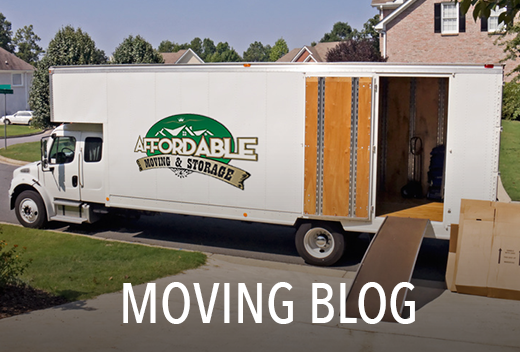How Much Do Movers Cost For a 2 Bedroom Apartment?
GET A Free Quote


Moving from one home to another is a significant milestone, often marked by a mix of excitement and stress. Among the various challenges, understanding and managing the costs associated with moving is a crucial aspect, especially when it comes to relocating from a 2-bedroom apartment. The cost of hiring professional movers is influenced by multiple factors, each contributing to the final price tag of your move.
When planning a move, one of the first questions that comes to mind is, "How much will it cost to hire movers?" The answer isn't straightforward, as the costs can vary widely based on several key factors. For a 2-bedroom apartment, the size itself suggests a moderate amount of belongings, but that's just the starting point in determining moving costs.
The distance of your move plays a significant role; a local move within the same city or area will cost considerably less than a long-distance relocation to another state or across the country. The volume and type of items you’re moving also impact the cost. A 2-bedroom apartment might contain various large items like furniture, appliances, and an array of personal belongings, all requiring careful packing and handling, adding to the overall cost.
Additional services movers provide, such as packing, disassembling, and reassembling furniture and providing moving supplies, can also influence the total cost. While increasing convenience, these services add to the labor and time required for the move.
Timing is another factor; moving during peak seasons, on weekends, or at the end of the month can be more expensive due to higher demand. Conversely, scheduling your move on a weekday or off-peak season might offer some cost benefits.
Lastly, the cost of insurance and valuation coverage for your belongings during the move plays a part in your total moving expenses. Ensuring the safety and security of your items can add to the cost but provides peace of mind.
In the following sections, we will detail these factors, offering insights and average cost estimates to help you better understand and prepare for the expenses associated with moving from a 2-bedroom apartment.
Factors Influencing Moving Costs
When it comes to moving from a 2-bedroom apartment, several key factors play a crucial role in determining the overall cost. Understanding these variables can help you plan more effectively and avoid surprises. Let's explore these factors in detail:
1. Distance of the Move
The distance between your current and new home is a primary factor in calculating moving costs. Generally, moving companies classify moves into two categories:
- Local Moves: Typically, these are moves within the same city or a radius of about 5-50 miles. Local moving companies often charge by the hour, with the cost increasing with the number of movers and trucks required. The average hourly rate can vary depending on the region, but it usually ranges from $175 to $225 per hour for a crew of three movers and a truck. A local move for a 2-bedroom apartment can take roughly 5-7 hours, translating to approximately $1195-$1595 in total.
- Long-Distance Moves: These moves cover distances over 100 miles, including interstate relocations. For long-distance moves, movers typically charge based on the weight of your items and the distance traveled. The average cost can range from $2,500 to $5,000, depending on the weight and the distance. For a 2-bedroom apartment, the total weight of items might range from 3,500 to 5,000 pounds.

2. Volume and Type of Items
The amount and type of items you’re moving significantly impact the cost. The more items you have, the larger the truck and the more labor needed, thereby increasing the cost. Specialty items, like pianos, art pieces, or large electronics, require extra care and may incur additional fees due to the need for special packing and handling.
3. Additional Services
Many moving companies offer a range of additional services that, while increasing convenience, also add to the overall cost:
- Packing and Unpacking: If you opt for full packing services, movers will pack all your belongings, which can be a significant added expense. The cost depends on the amount and type of items, as well as the materials used. Unpacking services at your new home can also be arranged for an additional fee.
- Assembly/Disassembly of Furniture: Large pieces of furniture may need to be disassembled and reassembled. This service is often charged separately or may add extra time to the hourly rate for local moves.
- Moving Supplies: While some movers include basic supplies in their service, additional materials like bubble wrap, wardrobe boxes, or custom crates for valuable items will increase costs.
4. Timing of the Move
The timing of your move can also affect the cost:
- Peak Moving Season: The summer months are the busiest for moving companies, often resulting in higher rates. Weekends and the end of the month are also peak times due to higher demand.
- Off-Peak Discounts: Moving during the fall or winter, or on weekdays, can lead to lower rates due to less demand.
5. Insurance and Valuation Coverage
Most moving companies offer basic valuation coverage, which is usually based on the weight of the items and provides minimal compensation. For additional protection, you might consider purchasing full-value protection or third-party insurance, especially for high-value items. This added coverage will increase your moving costs but offers greater peace of mind.
The costs associated with moving from a 2-bedroom apartment are subject to these and possibly other individual factors. By understanding and anticipating these expenses, you can better prepare and budget for your move, ensuring a smoother transition to your new home.
Average Cost Estimates
When planning a move from a 2-bedroom apartment, one of the most pressing concerns is often the cost involved. While individual circumstances can vary widely, understanding average cost estimates provides a helpful benchmark. Here, we'll break down these costs for local moves, long-distance moves, and differences between peak and off-peak seasons.
Local Moves
Local moves are typically defined as relocations within the same city or a 5-50 mile radius. For a 2-bedroom apartment, the cost of a local move is primarily calculated on an hourly basis. This rate includes the services of the moving crew, a moving truck, and basic moving supplies.
- Average Hourly Rates: Depending on the region and the moving company, the hourly rate for a local move usually ranges from $175 to $225 per hour for a team of three movers and a truck.
- Duration of Move: A 2-bedroom apartment generally takes about 5-7 hours to move, depending on factors like the volume of items, ease of access, and whether additional services like packing are included.
- Total Cost Estimate: Based on these factors, the total cost for a local move of a 2-bedroom apartment can range between $1195 and $1595.
Long-Distance Moves
Long-distance moves, which are typically over 100 miles or involve crossing state lines, have a different pricing structure. These moves are usually priced based on the total weight of the shipment and the distance traveled.
- Weight of Belongings: An average 2-bedroom apartment might contain items weighing approximately 3,500 to 5,000 pounds.
- Distance and Pricing: The cost per pound varies and the distance can significantly influence the total price. For example, moving 1,000 miles would cost more than a 300-mile relocation.
- Average Cost Range: For a long-distance move, the average cost for a 2-bedroom apartment can vary from $2,500 to $5,000 or more. This estimate can increase with services like packing, special handling for delicate items, or additional insurance coverage.
Peak Season vs. Off-Season Rates
The timing of your move can significantly affect the cost due to the fluctuating demand throughout the year.
- Peak Season (Late Spring to Early Fall): This period is the busiest for moving companies, often resulting in higher rates. The demand peaks particularly from May to September, coinciding with school vacations and favorable weather. During these months, rates can be higher by 20% to 30% compared to off-peak times.
- Off-Season (Late Fall to Early Spring): Moving in the off-peak season can lead to cost savings. Many moving companies offer lower rates during these months due to decreased demand. Planning a move on weekdays or in the middle of the month can also result in more affordable rates.

Cost-Saving Tips
Relocating can be expensive, but there are several strategies to help reduce the costs associated with moving from a 2-bedroom apartment. Implementing cost-saving measures can make a significant difference in your overall moving budget. Here are some practical tips:
1. Decluttering Before Moving
One of the most effective ways to reduce moving costs is to declutter before you move. The less you have to pack and transport, the lower your moving costs will be.
- Sell or Donate Unwanted Items: Go through your belongings and decide what you need in your new home. Sell items of value through online marketplaces or garage sales, and donate items in good condition to local charities.
- Recycle and Dispose of Unusable Items: Properly dispose of items that are no longer usable. Recycling centers and waste disposal services can help handle these items responsibly.
- Reduced Weight and Volume: Decluttering can significantly reduce the weight and volume of your shipment, directly impacting the cost, especially for long-distance moves.
2. Comparing Moving Quotes
Always get quotes from multiple moving companies. This not only helps you understand the average cost but also enables you to find the best deal.
- Obtain at Least Three Quotes: It’s recommended to get quotes from at least three different movers for a well-rounded view of the expected costs.
- Compare Services and Rates: Look beyond just the bottom line; compare what services are included in each quote. Sometimes a slightly higher quote may offer better value.
3. Packing Yourself
Professional packing services can add significantly to your moving costs. Packing yourself is a great way to save money.
- Gather Affordable Packing Supplies: You can often find free or inexpensive packing materials through local stores, online marketplaces, or community groups.
- Start Packing Early: Give yourself plenty of time to pack at your own pace, reducing the stress and the need for last-minute professional packing services.
4. Choosing the Right Time to Move
The timing of your move can greatly affect the cost due to fluctuating demand throughout the year.
- Move During Off-Peak Seasons: If possible, plan your move during the late fall to early spring when demand for moving services is generally lower.
- Avoid Weekends and Month-Ends: Moving on a weekday or mid-month can be less expensive than weekends or month-end dates, which are typically in higher demand.
By implementing these cost-saving strategies, you can make your move more affordable without sacrificing efficiency or safety. Whether it's reducing the volume of your belongings, comparing different moving companies, taking on the packing process yourself, or choosing a less busy time to move, each of these steps can contribute to a more budget-friendly relocation.
Understanding Moving Quotes
Navigating moving quotes can be one of the more complex aspects of planning your relocation from a 2-bedroom apartment. Moving companies offer different types of quotes, and each comes with its own set of considerations. Additionally, being aware of potential hidden costs and the value of in-home estimates can save you from unexpected expenses. Here’s a guide to help you understand moving quotes more clearly.
Types of Quotes
- Binding Quotes: A binding quote guarantees the total cost of the move based on the inventory and services outlined in the estimate. This type of quote offers predictability in budgeting, as the price won't change regardless of the actual weight or time involved. However, if you add items or services after receiving the quote, the cost may increase.
- Non-Binding Quotes: This quote provides an estimated cost based on the mover’s assessment of your belongings and the services you require. The final price is determined after the actual weight and services performed. While this quote may offer a lower initial estimate, it can lead to higher final costs if the weight or scope of services is underestimated.
Hidden Costs to Be Aware Of
Be vigilant about potential hidden costs in moving quotes:
- Packing Materials and Labor: Ensure that the quote includes the cost of packing materials and labor if you opt for packing services.
- Additional Services: Services like furniture disassembly/reassembly, appliance hookup, or handling of special items may incur extra fees.
- Storage Fees: If your move requires storage, inquire about the storage rates and any handling fees associated with storage.
- Cancellation or Rescheduling Fees: Understand the mover’s policy and potential costs if you need to cancel or reschedule the move.
Importance of In-Home or Virtual Estimates
In-home and virtual estimates are crucial for obtaining an accurate moving quote:
- Accurate Inventory Assessment: Movers can better assess the volume and nature of your items, leading to a more accurate quote.
- Identification of Potential Challenges: Movers can identify any issues that might complicate the move, such as narrow staircases or the need for special equipment.
- Opportunity to Discuss Needs: It's a chance for you to discuss your specific needs and preferences, and to ask questions about the moving process.
Understanding the types of moving quotes, being aware of potential hidden costs, and the importance of in-home and virtual estimates are key to avoiding surprises and ensuring a smooth moving experience. With this knowledge, you can make informed decisions and choose a moving company that best fits your needs and budget.

Additional Costs to Consider
When budgeting for a move from a 2-bedroom apartment, it's essential to account for not just the basic moving costs but also additional expenses that might arise. These can include storage costs, fees for moving specialty items, travel-related fees, and tips for movers. Being aware of these costs can help you create a more accurate moving budget and avoid unexpected financial surprises.
1. Storage Costs
If you need to store your belongings either before, during, or after your move, you will need to consider storage costs.
- Types of Storage: Moving companies often offer different types of storage solutions, including short-term and long-term options. Climate-controlled storage may be necessary for sensitive items.
- Cost Factors: Storage costs typically depend on the size of the storage unit and the length of time your items will be stored. Prices can vary widely, so it’s important to get a detailed quote.
- Accessibility: Additional fees might be charged for 24-hour access or specific handling requirements within the storage facility.
2. Specialty Item Moving Costs
Moving specialty items requires additional care and expertise, which often results in higher costs.
- Examples of Specialty Items: This category includes items like pianos, artwork, antiques, large safes, and other valuables or bulky items that require special handling.
- Pricing: Movers may charge a flat fee for each specialty item or a rate based on the item's size, weight, and the complexity of the move. These costs are generally in addition to the standard moving fees.
3. Travel Fees and Tolls
For both local and long-distance moves, there may be travel fees and tolls that can add to the total cost.
- Local Move Travel Fees: For local moves, travel fees often cover the time and fuel to get the moving truck from the company’s depot to your location.
- Long-Distance Move Tolls and Fees: For long-distance moves, tolls on highways and bridges can add up, especially when traversing multiple states.
- Fuel Charges: Fuel charges are particularly significant for long-distance moves and can fluctuate based on fuel prices.
4. Tips for Movers
While not mandatory, tipping movers for their hard work is a common practice.
- Tipping Guidelines: The general rule of thumb is to tip between $4 and $5 per hour per mover. For example, if you have a team of two movers for a six-hour job, a total tip of $48 to $60 per mover would be a generous gesture.
- Factors Influencing Tips: Consider the difficulty of the move, the level of service provided, and any special assistance the movers provided when deciding on the tip amount.
Incorporating these additional costs into your moving budget will provide a more comprehensive financial picture, ensuring you are fully prepared for the expenses associated with relocating from a 2-bedroom apartment. While some of these costs may be optional or vary depending on your specific circumstances, being aware of them can help you make more informed decisions and negotiate better with moving companies.
Conclusion
When budgeting for your move, consider all potential costs, not just the basic moving fees. Anticipating additional expenses will help you avoid unexpected financial strain. It's also wise to set aside a contingency fund for unforeseen circumstances.
In selecting a affordable mover, don't just focus on the lowest quote. Assess the value provided, including the reputation of the moving company, the range of services offered, and the clarity and comprehensiveness of their quote. An in-home estimate can provide the most accurate assessment of your moving costs and needs.
Moving is undoubtedly a significant undertaking, but with careful planning, budgeting, and the selection of a reliable moving company, it can be a smooth and successful transition to your new home. Remember, thorough research and preparation are your best tools for a cost-effective and stress-free move.



Add new comment